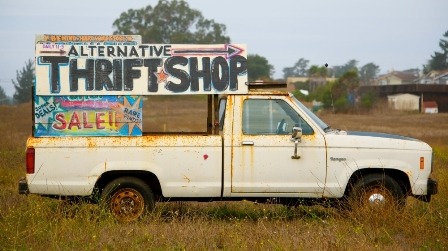EUGENE HERBERT
Do your drivers need to lose some weight? Research suggests that drivers who turn their vehicles into mobile warehouses or offices can reduce mileage by 2% for every 3, 7 litres of fuel if they have approximately 50kg of extra weight in their car.
While it might be convenient to carry extra products, equipment or even personal items in one’s vehicle, it might cost your company in the long run.
Fleet managers need to take the correlation between weight and fuel economy seriously if they are committed to reducing costs. When you pay attention, managers will be surprised by how quickly a vehicle can fill up with items, some necessary, many not. Effectively, for some employees, their vehicles are their offices and may seem like an ideal place to store items both for work and personal effects.
This increases the fuel consumption because, for every extra kilogram of weight, the engine needs to work harder. Working harder requires more fuel. Thus, removing unnecessary items from the car removes this demand on the engine and also improves the braking and acceleration.
The question you may now be asking is how to change this habit? Bring the difference that extra weight could make to fuel consumption to the attention of your employees who work on the road.
Get all employees to go through the items in their car to remove those that are clearly not needed to perform their roles and others they seldom need.
Reinforce this by making it a permanent part of your policies for drivers. If you find that drivers are consistently falling back to their old habits, you may find it necessary to attach consequences to not following the policy.
Ultimately, recognizing the effect unnecessary weight can have on your fuel bill requires employees to understand this and play their part in reducing it.
The part that relies on fleet management rather than employees is the choice of fleet vehicles. The weight of the vehicle itself can also affect fuel consumption. If you have narrowed your choices down to two or three options, all with similar fuel consumption estimates, take the time to check the weight differences of the cars. If there is a difference, this could help you make the best choice.
Take the time to investigate if your employees need to ‘shed a few kilos.
For every 10% reduction of weight in a vehicle, fuel economy increases by 7%. During a time when companies are pressed to save costs wherever possible, ensure your fuel bill has not been needlessly increased.
Eugene Herbert is the CEO of SA-based MasterDrive
©Copyright MOTORING WORLD INTERNATIONAL.
All rights reserved. Materials, photographs, illustrations and other digital content on this website, may not be reproduced, published, broadcast, rewritten or redistributed in whole or in part without prior written permission from Motoring World International
Contact: [email protected]




